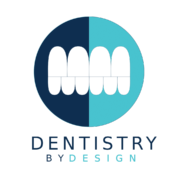How to Stop Grinding Your Teeth
Have you ever woken up from a night’s sleep and thought, “wow, my teeth and jaws are extremely sore?” You could be unaware that you are grinding your teeth in the middle of the night. Grinding teeth, also known as bruxism, often stems from anxiety or stress and affects people without them knowing it. Teeth grinding most commonly happens while sleeping (it can also occur while you are awake), and over time this habit can permanently damage the teeth or cause other unpleasant complications.
Causes
Possible causes of teeth grinding include anxiety, stress, heavy alcohol consumption, depression, sleep disorders and caffeine. Research shows that people who snore or suffer from sleep apnea have a higher chance of grinding their teeth at night.
Symptoms
The most common symptom of teeth grinding is a headache. People who grind their teeth also experience:
- Tight or painful jaw muscles
- Swelling on the side of your lower jaw
- Long-lasting pain in the face
- Jaw contractions
- TMJ discomfort
- Stiffness of neck and shoulders
Teeth grinding can lead to fracture and loss of teeth, so it’s essential to tackle bruxism head-on.
Treatment
It depends on the cause, but the best way to protect your teeth is to wear an occlusal appliance. This custom made, fitted mouthpiece acts as a guard and is made to fit over your top or bottom teeth. These occlusal appliances help reduce jaw muscle pain and protect your teeth. Typically, you wear these appliances at bedtime. If stress and anxiety are the cause of your grinding, then relaxation techniques or mediation may help your grinding habit.
It is encouraged that you have an evaluation by your dentist to find what treatment will work best. Once the dentist has evaluated you, they can implement a treatment plan, and you can be on your way to a healthy and happy smile. Contact our office for a proper diagnosis and treatment plan, 405-267-8362.

